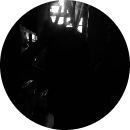10. The problem will be explaining by my father tomorrow. A B C D Ex6 Find the word which is CLOSEST in meaning with the underlined part 1. Wind power is plentiful. We will use it more in the near future. A. many B. little C. few D. some 2. Tet often occurs around late January or early February A. end B. enjoy C. happen D. take care of 3. The festival takes place annually. A. every morning B. every year C. every Monday D. in the afternoon 4.To tell the truth it’s a bit weird being out here on my own. A. common B. good C. strange D. usual 5.People from diverse cultures choose to live in America. A. same B. similar C. uniform D. varied Not Not many people think that our energy source will be run out some day A. e A. exist B. use up C. limit D. create Ex7.Find the word which is OPPOSITE in meaning with the underlined part 1. Nuclear power is expensive. A. safe B. abundant C. cheap D. much money 2. The air is polluted. A. dangerous B. clean C. available D. plentiful 3. The school starts in September. A. ends B. attends C. sets up D. begins 4.Why are slums in Hanoi less visible than in other rapidly growing cities? A. messy houses B. old square C. poor conditions D. luxury flats 5. It is said overcrowded cities are more likely to be affected by violence. A. full B. empty C. overpopulated D. crammed  Ex8.Read the passage and choose the best answer Ex8.Read the passage and choose the best answer
1. The sun is our nearest star, and all of our energy comes from it. The sun sends out very large amounts of energy every day. We call this energy solar energy or radiant energy. Without the sun, life on earth would not exist because our planet would be totally frozen. We use this solar energy in many different ways. The sunlight lets us see and warms us. Plants use the light from the sun to grow. They store it as chemical energy. The energy is stored in their roots, fruits, and leaves. This energy feeds every living thing on the earth. When humans and animals eat plants, and the food made from plants, we store the energy in our bodies, in our muscles and in our brain cells. 1. Which does all of our energy come from? A. the sun B. the wind C. the water D. nuclear power 2. If we didn’t have the sun, what would happen? A. life would not exist B. we live happily C. life would exist D. life is hotter 3. Why do plants use the light from the sun? A. to grow B. to store C. to make food D. to run 4. Where do we store the energy? A. in the shops B. in our bodies C. in the roots D. in the leaves 
2. Scientists are now looking (1) _______cheaper way to use solar energy to heat air and water. Many buildings are using solar energy to heat water now. Solar units on the (2) _______of buildings collect the energy and use it to heat water. Although these units are still very (3) _______, more and more people are (4) _______ solar hot water heaters. Universities and colleges give solar energy courses where students learn to build their own solar (5) _______. In the future, there will be more and more solar collectors, especially in the sunny desert areas of the world. 1. | A. for | B. at | C. after | D. on | 2. | A. floors | B. walls | C. roofs | D. gates | 3. | A. cheap | B. expensive | C. heavy | D. old | 4. | A. selling | B. borrowing | C. sending | D. buying | 5. | A. collectors | B. comsummers | C. directors | D. announcers |

3. There are (1) __________types of films: comedy, romance, science fiction, romance, documentary, horror, action, etc. In those kinds, my favorite one is (2)_________, such as Titanic, The Notebook, Noting Hill. They give us a meaningful lesson about life and love. Sometimes they are moving and make me laugh a lot. I am also keen (3) __________ documentaries. They give me such an interesting (4) ______ . 1. A. few B. much C. one D. various 2. A. romantic B. comedy C. sci-fi D. action 3. A. in B. on C. with D. about 4. A. games B. knowledge C. song D. meal 
4 Travelling in the future will be much easier and safer. People may travel __(5)__ a driverless car. Even old and disabled people will be able to use it because the car can __(6)__ itself. However, a driverless car will be expensive. People can choose to go on foot on moving pavements. A Swiss company has invented a system of high-speed moving pavements. This will reduce travelling time of __(7)__ and traffic jams effectively. Therefore, more people will __(8)__ their vehicles home. 5. A. on B. at C. in D. to 6. A. ride B. drive C. pedal D. sail 7. A. pavements B. pedestrians C. roads D. systems 8. A. let B. travel C. leave D. go Ex9. Read the text and then choose the best answer A, B, C or D. Many people still believe that natural resources will never be used up. Actually, the world's energy resources are limited. Nobody knows exactly how much fuel is left. However, we also should use them economically try to find out alternative sources of power. According to Professor Ma Burnham of the New England Institute of Technology, we have to start conserving coal, oil and gas before it is too late; and nuclear power the only alternative. However, many people do not approve of using nuclear power because it is very dangerous. What would happen if there were a serious nuclear accident? Radioactivity causes cancer and may badly affect the future generations. The most effective thing is that we should use natural resources as economically as possible. 1.How much fuel is left? A.No one knows exactly. B.It will never be used up. C.There is a lot of fuel. D.Let's use it as much as we would like. 2.We should use coal, oil, and gas __________. A.as much as possible B.carelessly C.as economically as possible D.all are incorrect 3.According to the passage, using nuclear power is __________. A.safe B.cheap C.interesting D.dangerous 4.Radioactivity from nuclear power __________. A.is necessary to cure diseases B.can have good effects on the future generations C.alters a new kind of energy D.causes cancer and has bad effects on the future generations  Ex10. Writing Ex10. Writing
1.Choose the best answer so that it has the same meaning with the given sentence 1. In the past, we play football at the weekend. But now, we don’t play anymore. A. We used to play football at the weekend. B. We are playing football at present. C. We use to play football at the weekend. D. We didn’t use to play football at the weekend. 2. Although he is tired, he goes to work this morning. A. In spite being tired, he goes to work this morning. B. Despite being tired, he goes to work this morning. C. In spite of tired, he goes to work this morning. D. Because he is tired, he goes to work this morning. 3. The festival of the Sun is held on June 24th. A. Where is the festival of the Sun held? B. When is the festival of the Sun held? C. Why is the festival of the Sun held? D. Which is the festival of the Sun held? 4. We will install solar panels on the roof of our house tomorrow. A. Solar panels will install on the roof of our house tomorrow. B. Solar panels will be installed on the roof of our house tomorrow. C. Solar panels isl installed on the roof of our house tomorrow. D. Solar panels will be installing on the roof of our house tomorrow. 5. I am interested in action movies. A. Action movies are interesting to me. B. Action movies are boring to me. C. Action movies are interested to me.  D. Action movies are bored to me. D. Action movies are bored to me.
2 Choose the best sentence that can be made from the cues given. | 1. It/ 300 kilometres/Ho Chi Minh city/Phu Quoc Island. A. It is about 300 kilometers to Ho Chi Minh city from Phu Quoc Island. B. It is about 300 kilometers from Ho Chi Minh city to Phu Quoc Island. C. It is about 300 kilometers from Ho Chi Minh city and Phu Quoc Island. D. It is about 300 kilometers go Ho Chi Minh city to Phu Quoc Island. | 2. My father used/ go/ work/ bicycle. A. My father used go to work by bicycle. B. My father used to go work by bicycle. C. My father used to go to work bicycle. D. My father used to go to work by bicycle. | 3. streets/ used cleaner/peaceful. A. The streets used to be cleaner and peaceful. B. The streets used to be cleaner and more peaceful. C. The streets used to cleaner and peaceful. D. The streets used to cleaner and more peaceful. | 4. We/ use/ sources/ energy more effectively/ our future. A. We will use sources of energy more effectively to our future. B. We will be used sources of energy more effectively to our future. C. We will be used sources of energy more effectively for our future. D. We will use sources of energy more effectively for our future. | 5. They/put/ low energy light bulbs/ my school/ next week. A. They will be put low energy light bulbs in my school next week. B. They will be putting low energy light bulbs in my school next week. C. They will to put low energy light bulbs in my school next week. D. They will put low energy light bulbs in my school next week. | 6. How/ students/ there/your class? A. How much students are there in your class? B. How much students is there in your class? C. How many students are there in your class? D. How many students is there in your class? | 7. How/ you/ wait/ her? A. How far have you waited for her? C. How many have you waited for her? | 8. What/ TV programs/ your brother/ like/? A. What TV program does your brother like to watching? B. What TV program do your brother like watching? C. What TV program does your brother like watching? D. What TV program do your brother like to watching? |  9. It /expensive/build/ solar power stations. 9. It /expensive/build/ solar power stations.
A. It is very expensive to build solar power stations. B. It is very expensive to build a solar power stations. C. It is very expensive building solar power stations. D. It is very expensive building a solar power stations. | 3. Choose the sentence which is closet in meaning to the sentence above. | 1. In spite of the noise, I kept on studying. A. Although it is noisy, I keep on studying. B. Although it is noisy, I kept on studying. C. Although it was noisy, I kept on studying. D. Although it was noisy, I keep on studying. | 2. Despite his good English, he wasn’t chosen. A. Although his English good, he wasn’t chosen. B. Although his English was good, he wasn’t chosen. C. Although his English was good, he was chosen. D. Although his good English, he wasn’t chosen. |  3. What time do you often get up? 3. What time do you often get up?
A. When do you often get up? C. Where do you often get up |  4. Why do you study English? 4. Why do you study English?
A. Where do you study English for? C. What do you study English for? | 5. That is your English-Vietnamese dictionary. A. That English-Vietnamese dictionary is your. B. That is English-Vietnamese dictionary yours. C. That English-Vietnamese dictionary is yours. D. That is yours English-Vietnamese dictionary. | 6. Those are our warm clothes. A. Those are warm clothes ours. B. Those warm clothes are our. C. Those are ours warm clothes. D. Those warm clothes are ours. | 7. Phong started to collect old coins five years ago. A. Phong has collected old coins for five years. B. Phong has started to collect old coins for five years. C. Phong likes collecting old coins. D. Phong collected old coins five year ago. | 8. They last went to school by bike two years ago. A. They have gone to school by bike for two years. B. They have gone to school by bike two years ago. C. They haven’t gone to school by bike for two years. D. They haven’t gone to school by bike two years ago. | 9. It is very challenging for someone to climb the mountain alone. A. Someone find climbing the mountain alone challenging. B. Someone finds climbing the mountain alone challenging. C. Someone finds it is challenging to climb the mountain alone. D. Someone find it challenging to climb the mountain alone. | 10. My brother likes listening to pop music. A. My brother is interesting in listening to pop music. B. My brother is interesting on listening to pop music. C. My brother is interested in listening to pop music. D. My brother is interested on listening to pop music. | 11. I like bird-watching so much. A. I am fond of watching birds so much. B. I love watching bird so much. C. I enjoy feeding birds up so much. D. lam fond of watching bird so much. ________________________________________________________________________________________ | EX1 Choose the word that has a different stress pattern from the others. 1. A. increase B. parade C. balloon D. shortage 2. A. pedal B. recycle C. visit D. power 3. A. lovely B. attend C. dancer D. answer 4. A. parade B. copy C. alone D. begin 5. A. offer B. prefer C. abroad D. arrive 6. A. invent B. replace C. perform D. offer 7. A. alone B. joyful C. usual D. famous 8. A. contribute B. recycle C. celebrate D. imagine 9. A. different B. dangerous C. pollution D. plentiful 10. A. energy B. dangerous C. expensive D. natural Ex2. Put the correct form of the verb in brackets. 1. If we (not save)………………… electricity, we (not have ) ………………………….. enough energy for our life. 2.They(work)……………………………….….. in the field yesterday afternoon. 3. This pagoda (visit) ………………………….. by many people so far. 4.Biogas (use) ……………………. for fuels in homes and for transport in the future. 5. We (know) …………………….. her since she (be) ………… a little girl. 6.She’ll be on holiday this time next week and she (lie) ……………………… on a beautiful beach. 7.At 9.00 tomorrow, I and my friends (cycle)…………………………….. to the park 8. How long ……………………. you (learn) ……………………. Japanese? 9. I promise I (come) ……………….. to see you soon. 10.If we plant more trees, the air (not be ) ........................... so polluted. Ex3. Make questions for the underlined parts in each following sentence. 1. It is 5 kilometers from here to my house. =>……………………………………………………………………………………………. 2. Mrs Lan goes shopping twice a week. => ……………………………………………………………………………………………. 3. People organize this festival to pray for better crops. => ……………………………………………………………………………………………. 4. Jack and his parents visited Nha Trang three months ago. => ……………………………………………………………………………………………. 5. They often decorate their houses with a lot of flowers and balloons. => ……………………………………………………………………………………………. Ex4. Turn the sentences into passive form. 1. Students will use public transport to go to school.→ ................................................................................... 2. Solar power will generate a great deal of electricity this summer. → ................................................................................................................................ 3. Will they install the solar panels on the roof of the house tomorrow? → ................................................................................................................................ 4. Local people won’t burn plants to heat this winter. → ................................................................................................................................ 5. The smoke from factories will pollute the air. → ................................................................................................................................ 6. They will build a hydro power station in this area. → ................................................................................................................................ 7. They will build a new school for poor children next month. → ................................................................................................................................ 8. They will send this letter soon. → ................................................................................................................................ | |
| 











